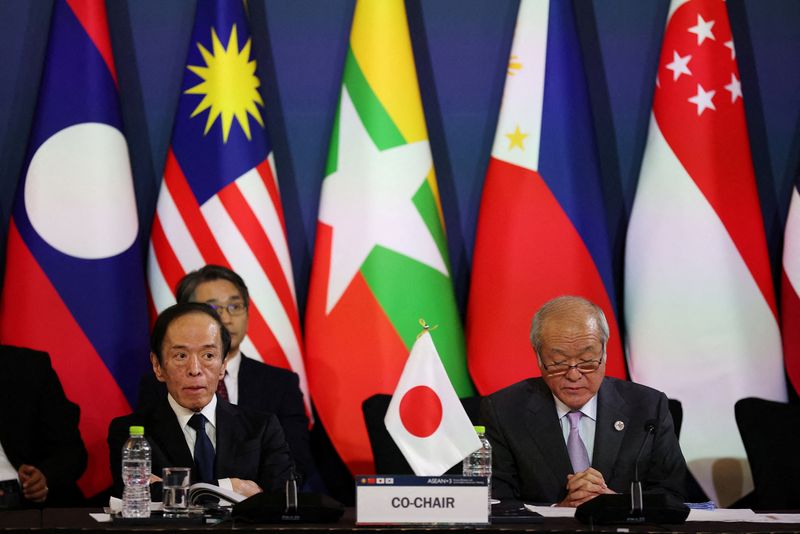By Leika Kihara
INCHEON, South Korea (Reuters) - Bank of Japan Governor Kazuo Ueda said on Tuesday the downside risks to Asia's economy were smaller than those to other parts of the world, partly due to the region's resilience to U.S. and European banking sector woes.
His remarks underscore optimism over the outlook for Asia's economy, which has a big influence on Japan's fragile recovery due to its proximity and huge market size.
"The risks Asia faces are smaller than those for other regions," Ueda told a briefing after attending a meeting of finance leaders from the ASEAN+3 - which comprises the 10-member Association of Southeast Asian Nations (ASEAN) and Japan, China and South Korea.
While Asian policymakers must be vigilant to the potential fallout from U.S. and European banking sector woes, the region's financial institutions have sufficient capital buffers and have little exposure to the problematic banks, he said.
"But policymakers must guard against possible spillovers from uncertainties over U.S. and European economies," he said.
Global recession risks are among key factors that will likely determine how soon the BOJ phases out its massive stimulus programme.
Asia has been among few bright spots in the global economy as China's rebound, thanks to the end to COVID-19 lockdowns, underpin the region's consumption and exports.
The ASEAN+3 economies grew by 3.2% in 2022 and is expected to expand by 4.6% in 2023, led by robust domestic demand, the group's joint statement said on Tuesday.

But Ueda said the group's finance leaders also discussed risks associated with China's outlook.
"China's economy is in good shape now due to the re-opening. But from a somewhat medium- to long-term perspective, there's a chance geo-political risks could hurt growth and have negative effects on the region's economy," Ueda said.